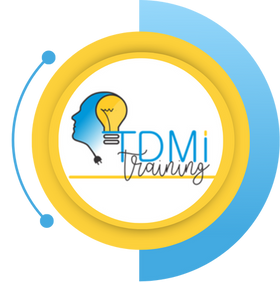Addressing Corruption in the Electrical Industry
Addressing Corruption in the Electrical Industry: Challenges and Solutions
Corruption in the electrical industry is an unfortunate reality that undermines trust, safety, and integrity. Whether it's through bribery, fraudulent certifications, or cutting corners to maximize profits, corruption can have serious consequences—not just for those directly involved, but for the entire Industry.
The Impact of Corruption
Corruption in the electrical industry can lead to:
-
Compromised Safety: When standards are ignored or bypassed, the safety of electrical installations is at risk. This can lead to accidents, fires, and even loss of life.
-
Erosion of Trust: Customers, clients, and other stakeholders lose faith in the industry when they encounter dishonest practices. This mistrust can tarnish the reputation of even those who operate with integrity.
-
Unfair Competition: Corrupt practices can give unethical companies an unfair advantage, making it difficult for honest businesses to compete. This can drive down industry standards and harm the overall market.
-
Legal and Financial Consequences: Those involved in corrupt activities may face legal penalties, fines, and even imprisonment. The financial burden of corruption can be heavy, impacting both individuals and businesses.
How to Deal with Corruption
-
Promote Transparency: Encourage openness in all business dealings. Clear contracts, honest communication, and regular audits can help ensure that all parties are held accountable.
-
Adhere to Standards: Always follow industry standards and regulations, even when it might be tempting to cut corners. Upholding these standards not only ensures safety but also builds a reputation for reliability and integrity.
-
Whistleblower Protection: Create an environment where employees feel safe to report unethical practices. Establishing whistleblower policies can help expose corruption and protect those who speak out.
-
Education and Training: Regularly train employees and stakeholders on ethical practices and the importance of integrity in the industry. Knowledge is a powerful tool in the fight against corruption.
-
Navigating Corruption in Industry: When the corruption is within the regulatory authorities themselves, it becomes even more challenging. In such cases:
-
Document Everything: Keep detailed records of all interactions, transactions, and communications with the authorities. Documentation can serve as vital evidence if the need arises to expose corruption.
-
Seek Higher or External Oversight: If local regulatory bodies are corrupt, look to higher governmental agencies, industry associations, or independent organizations that might have the authority to investigate and take action.
-
Collaborate with Industry Peers: Work with other professionals and companies in the industry to collectively address and challenge corrupt practices. A unified voice can be more powerful in demanding accountability.
-
Legal Counsel: Consider seeking legal advice to understand your options and rights when dealing with corrupt authorities. A lawyer can help navigate complex situations and protect your interests.
-
Standing Strong in Integrity
As professionals in the electrical industry, it's essential to stand firm against corruption. By committing to ethical practices, promoting transparency, and working together to uphold industry standards, we can create a safer, more trustworthy environment for everyone.
Dealing with corruption requires courage and a collective effort, but by doing so, we protect the integrity of our industry and ensure that it serves the greater good. Let’s be the change we want to see and lead by example in our daily work.


I think that’s a fact sometimes people will be given big contracts wihhout proper qualifications and because of corrupt individuals they ended up buying the contracts then they come to those who are qualified and tobacco them
Leave a comment